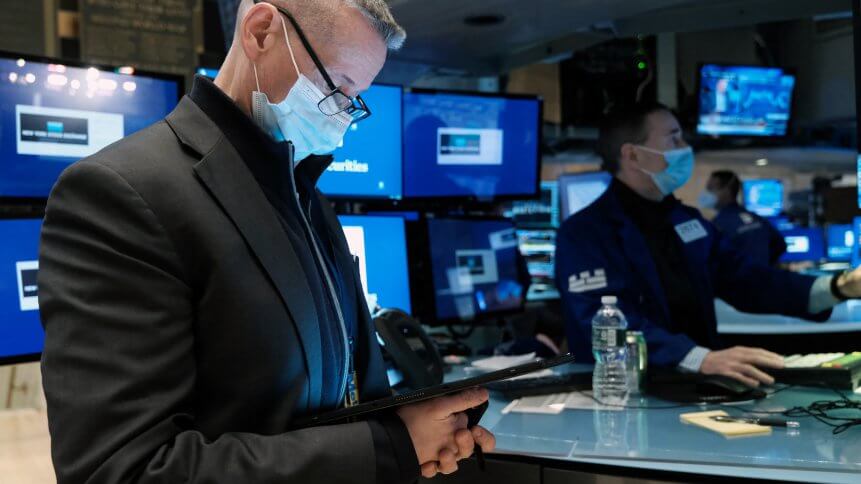Businesses rather employees work in office, not the metaverse

Most businesses around the world would ideally want to have their employees returning to work in the office. Yet, uncertainties caused by the COVID-19 pandemic are making it harder for businesses to plan exactly when they can have their employees back in the office.
Some businesses have already accepted the fact that remote and hybrid working models are the future of employment. And when it comes to remote work, it would most likely mean the employee is working from their homes specifically, not using a laptop on the beach sipping on cocktails.
This has been a prime concern for some companies who feel employees are using remote work as a means to have a more relaxed working atmosphere. Unfortunately, there is nothing they can do about it as at most times, remote workers have proven to be more productive than employees at work.
A Bloomberg report stated that 55% of employees would consider quitting their job if they were requested to return back to office to work before they felt safe. Hence, hybrid working became the next best option in getting employees to work in office. However, just as businesses are starting to find their groove with hybrid working, concerns of unvaccinated employees became a problem as well.
In the US, CNN reported that the Supreme Court has blocked President Joe Biden’s vaccine and testing requirement aimed at large businesses, but it allowed a vaccine mandate for certain health care workers to go into effect nationwide. The decision is a huge hit to Biden’s attempts to use the power of the federal government to fight the Covid-19 pandemic.
Thus, the workplace has to evolve again. And the metaverse might just be the answer. The metaverse is primarily defined as a shared digital space with digital representations of people, places, and objects. In the future, the metaverse can be a highly immersive extension of the physical world, with its rich user interface. At the enterprise level, this opens up possibilities for businesses to create a more viable, interactive workplace.
According to research from Lenovo, close to half of employees (44%) are willing to work in the metaverse and believe that it can deliver benefits like productivity to the workplace. Despite this, there is skepticism on whether companies have the capabilities to pull it off. Two in five (43%) respondents believe their employers do not, or probably do not have the knowledge or expertise to enable them to work in the metaverse of the future.

(Photo by OLIVIER DOULIERY / AFP)
Other key findings from the survey include:
- While half of the employees (44%) are willing to work in the metaverse, 20% are unwilling, with 21% saying they are neutral and another 15% saying they are not sure.
- Half of working adults (51%) agree that an employer’s speed of adoption of new technology is an indicator of readiness for new technological realities, such as the virtually enhanced physical reality of the metaverse.
- Working adults in Brazil (53%), Singapore (51%), and China (54%) are split evenly, with around half confident that their employers have the expertise to enable a metaverse workplace, and the other half less confident. Conversely, working adults in the United Kingdom (30%) and Japan (18%) are less optimistic.
- While 44% think the metaverse will improve their work productivity, three in five (59%) do not think or are not sure that their employers are currently investing enough in IT to help them maximize their productivity.
For Ken Wong, President of Lenovo Solutions and Services Group, the metaverse presents businesses with new opportunities but also more complex technological challenges, such as the need for more computing power, better-integrated hardware, and simpler and more flexible IT solutions.
“Though the metaverse has yet to be ubiquitous, organizations can get a head start with improving productivity at work. They do not have to invest significantly more capital to achieve that. Everything-as-a-service or pay-as-you-go models offer the flexibility, cost efficiency, and scalability to adapt to each company’s unique circumstance,” added Wong.
As such, to manage an increasingly complex technology, businesses need simple and flexible IT solutions. For example, Lenovo’s ThinkReality platform is powering the enterprise metaverse with a portfolio of award-winning hardware, software, and services. As-a-Service solution provides mission-critical support and services, enabling businesses to use technology to scale quickly, lower costs, and reap greater efficiencies.
“We are just scratching the surface of the metaverse, not to mention the new economics of Web 3.0. For now, the metaverse opens up a world of possibilities for businesses, which according to our research, almost half of employees are willing to participate in. To grasp it, companies need to identify new ways to make the most of their technologies,” said Wong.
The real question is, will companies be willing to invest on technologies to enable their employees to work in the metaverse or will they rather have them return to work in office? While the metaverse may be the future, the reality is, most businesses would rather invest on developing their employee skillsets instead of having them work in the metaverse.










